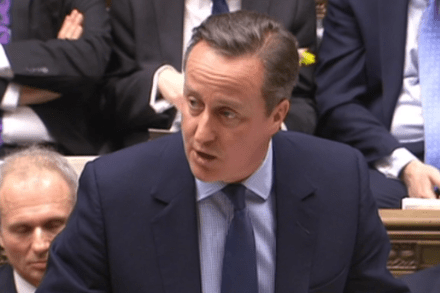Today in audio: Wednesday 3rd February
Haven’t had a chance to follow the day’s political events and interviews? Then don’t worry: here, The Spectator, brings you the best of today’s audio clips in one place for you to listen to. David Cameron did his best to try and talk up the draft EU package he negotiated with Donald Tusk as he gave a statement to the Commons: Jeremy Corbyn took him to task for not being in Parliament yesterday, sarcastically saying he hoped the PM had a ‘good time in Chippenham’ instead: John Mann gave the most stinging response to the EU draft document, asking the PM: ‘Is that it?’ David Cameron is likely to be




















